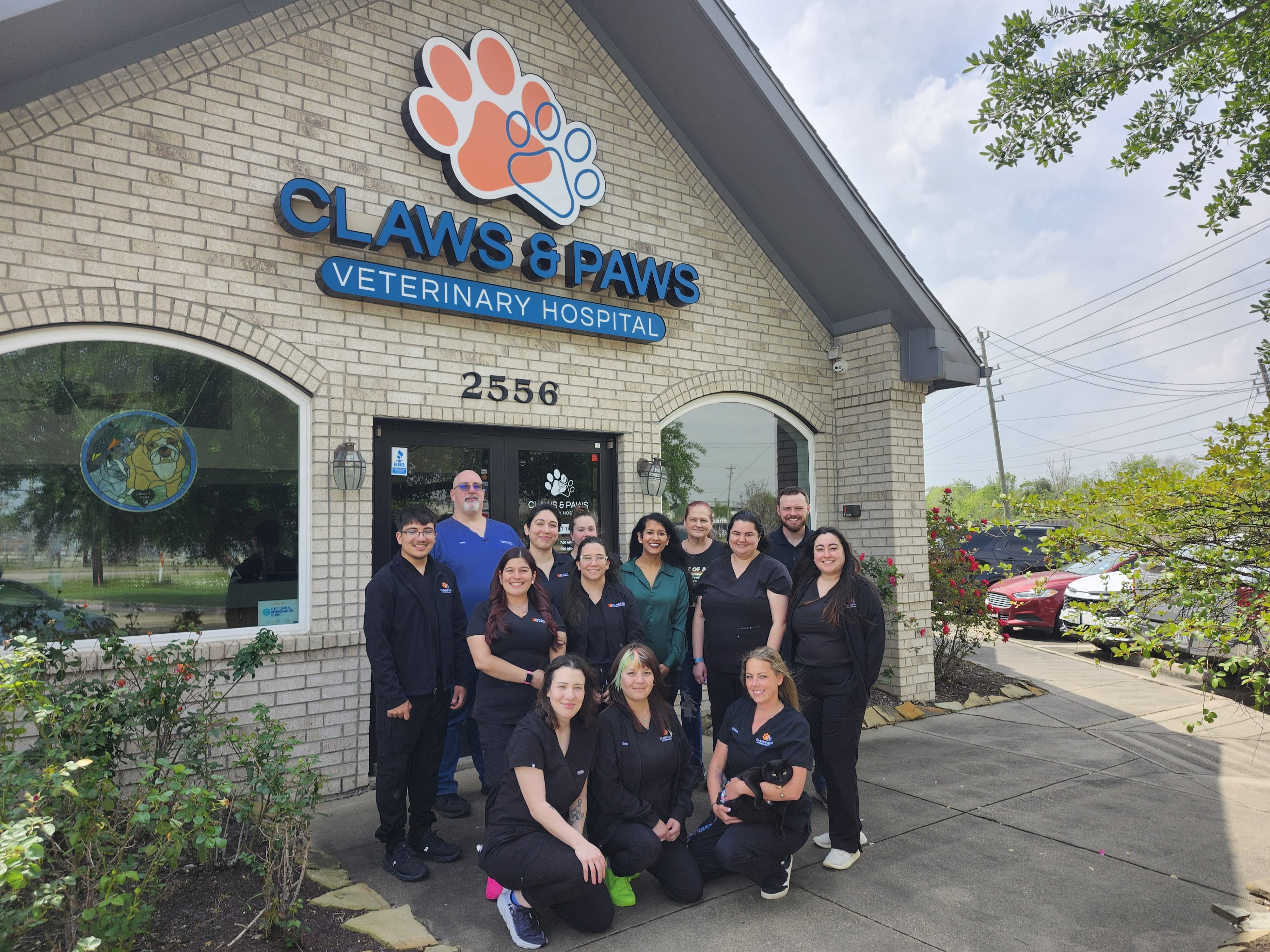HERO
WELCOME
Our Services
We have a variety of services available for our patients
Here at Claws & Paws Veterinary Hospital, we are pleased to have a large amount of veterinary services available for our patients. We are proud to be able to serve Pearland, TX and our surrounding communities to give your pet the best care that they deserve!
CTA TEAM
Meet the Team
Our Doctors and Staff
Meet the Doctors and staff at Claws & Paws Veterinary Hospital. We love bonding with our patients and enjoy seeing them on each visit. Since we know your furry babies and get to spend time with them, we think it is important for you to learn a little bit about each of the staff members here, so that you know who we are.















